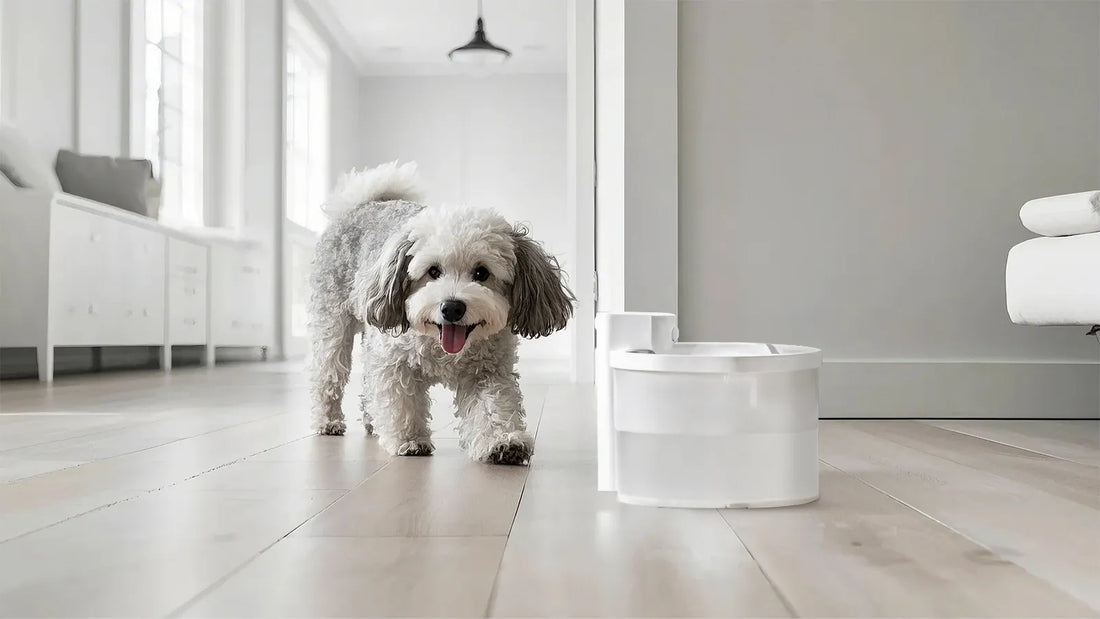It can be alarming when your dog stops eating or drinking, especially if they seem to be acting normal otherwise. While it might be tempting to brush it off as a temporary phase, understanding the underlying causes is crucial for your pet's health and well-being. This article explores the potential reasons behind this behavior, when to consult a veterinarian, and how to care for your dog during this time.
Possible Reasons Why Your Dog Is Not Eating or Drinking
There are several reasons why your dog might refuse food and water but still appear to be acting normally. Here are some common possibilities:
1. Stress or Anxiety
Dogs, like humans, can experience stress or anxiety, which may lead to a loss of appetite. Changes in their environment, such as moving to a new home, the arrival of a new pet, or even loud noises, can trigger this response. While they may seem fine on the surface, their eating habits could be affected.
2. Mild Illness or Discomfort
Your dog might be dealing with a mild illness or discomfort that isn't immediately obvious. Issues like a minor stomach upset, dental pain, or a sore throat could make eating or drinking uncomfortable. Even if they're acting normal, these underlying issues could be the cause.
3. Change in Diet or Routine
Dogs are creatures of habit, and any sudden change in their diet or daily routine can disrupt their eating patterns. If you've recently switched their food or altered their feeding schedule, they might take some time to adjust.
4. Environmental Factors
Extreme weather conditions, such as excessive heat or cold, can affect your dog's appetite. Similarly, if their food or water bowls are placed in an uncomfortable or unfamiliar location, they might avoid them.
5. Aging or Reduced Activity Levels
As dogs age, their metabolism slows down, and they may require less food. Additionally, if your dog has become less active, they might not feel as hungry as they used to.
When to Seek Veterinary Care
While a temporary loss of appetite might not be a cause for immediate concern, there are certain signs that indicate it's time to consult a veterinarian:
- Your dog hasn't eaten or drunk anything for more than 24 hours.
- They show signs of lethargy, vomiting, or diarrhea.
- You notice changes in their behavior, such as increased aggression or withdrawal.
- They have difficulty swallowing or show signs of pain.
Early intervention can prevent minor issues from escalating into serious health problems.
How to Support Your Dog During This Time
If your dog is not eating or drinking but acting normal, there are steps you can take to encourage them to eat and stay hydrated:
1. Offer Tempting Foods
Try offering your dog small portions of their favorite treats or a different type of food to stimulate their appetite. Warm the food slightly to enhance its aroma, which can make it more appealing.
2. Ensure Fresh Water Is Available
Make sure your dog has access to clean, fresh water at all times. If they're reluctant to drink, try adding a small amount of low-sodium broth to their water to make it more enticing.
3. Create a Calm Environment
Reduce stress by providing a quiet, comfortable space for your dog to eat and drink. Avoid sudden changes in their routine or environment.
4. Monitor Their Behavior
Keep a close eye on your dog's behavior and eating habits. If they continue to refuse food and water or show other concerning symptoms, seek veterinary advice promptly.
5. Consider a Veterinary Check-Up
If you're unsure about the cause of your dog's behavior, a visit to the veterinarian can help rule out any underlying health issues. They may recommend diagnostic tests or suggest dietary adjustments.
Understanding why your dog is not eating or drinking but acting normal is essential for their health. By identifying the potential causes and taking appropriate steps, you can ensure your furry friend stays happy and healthy. Remember, when in doubt, always consult a professional to provide the best care for your pet.













